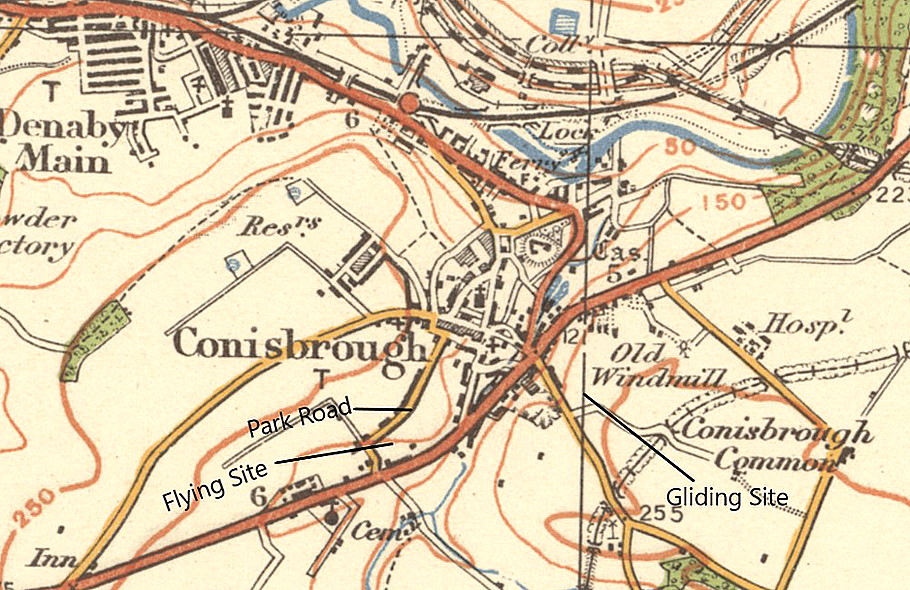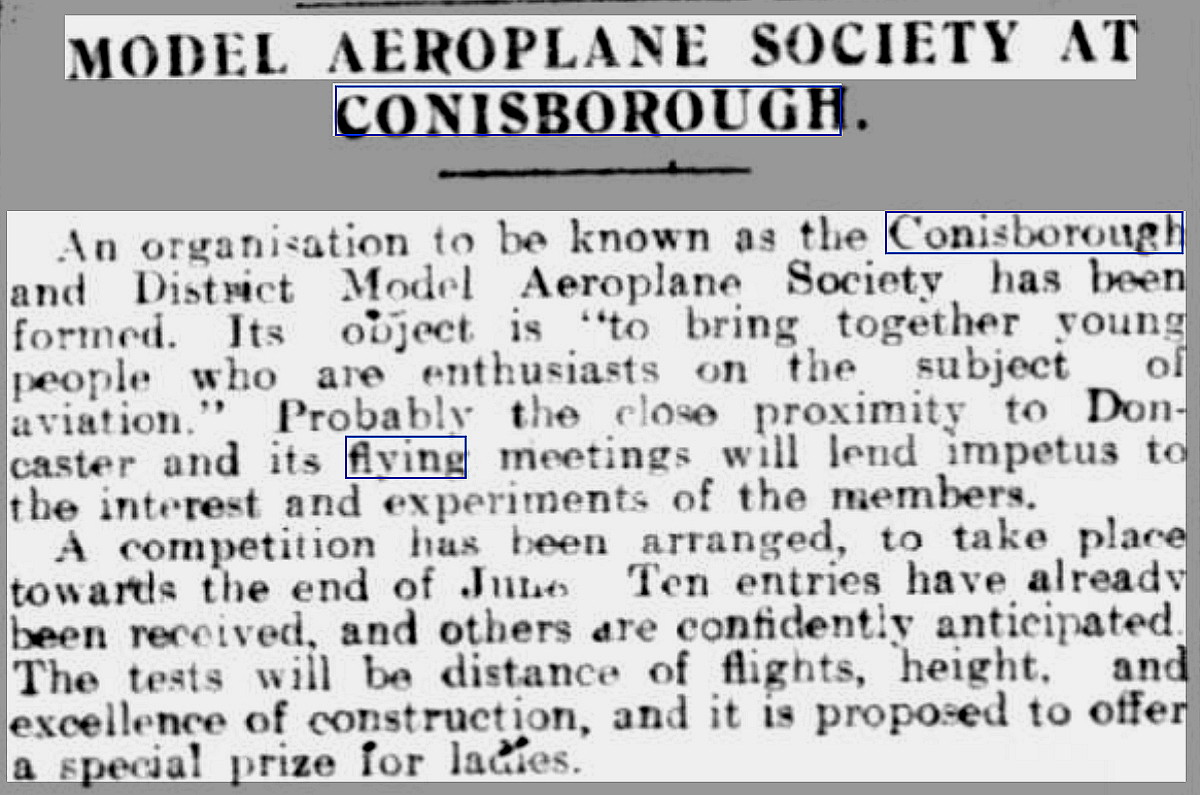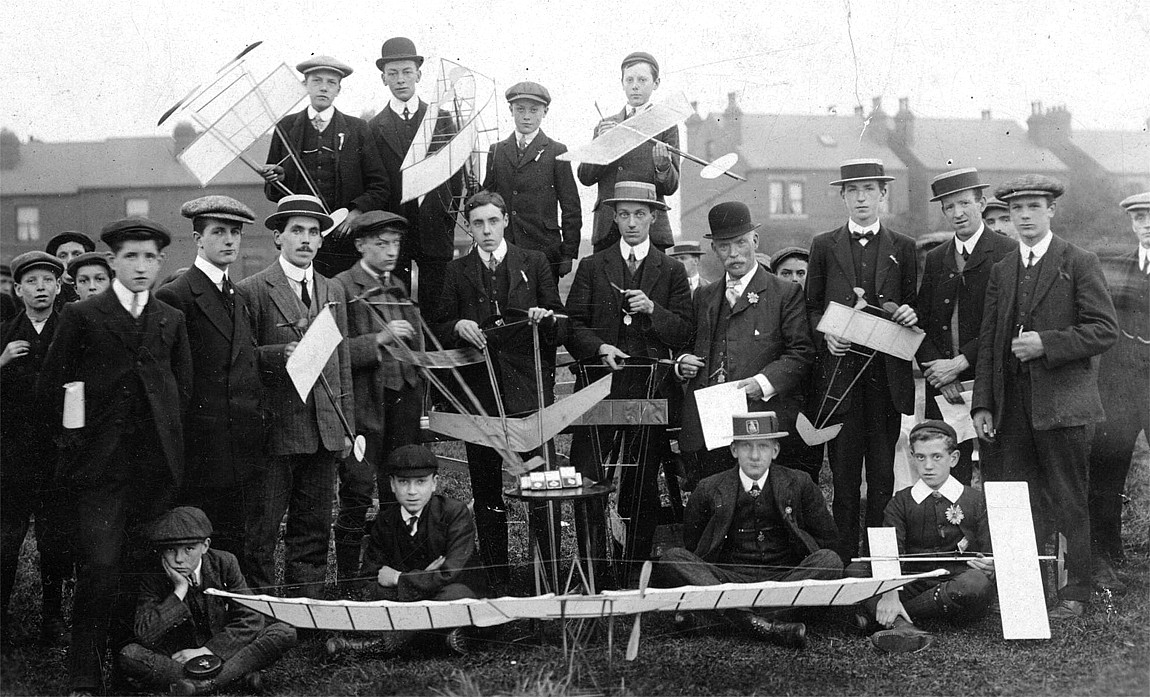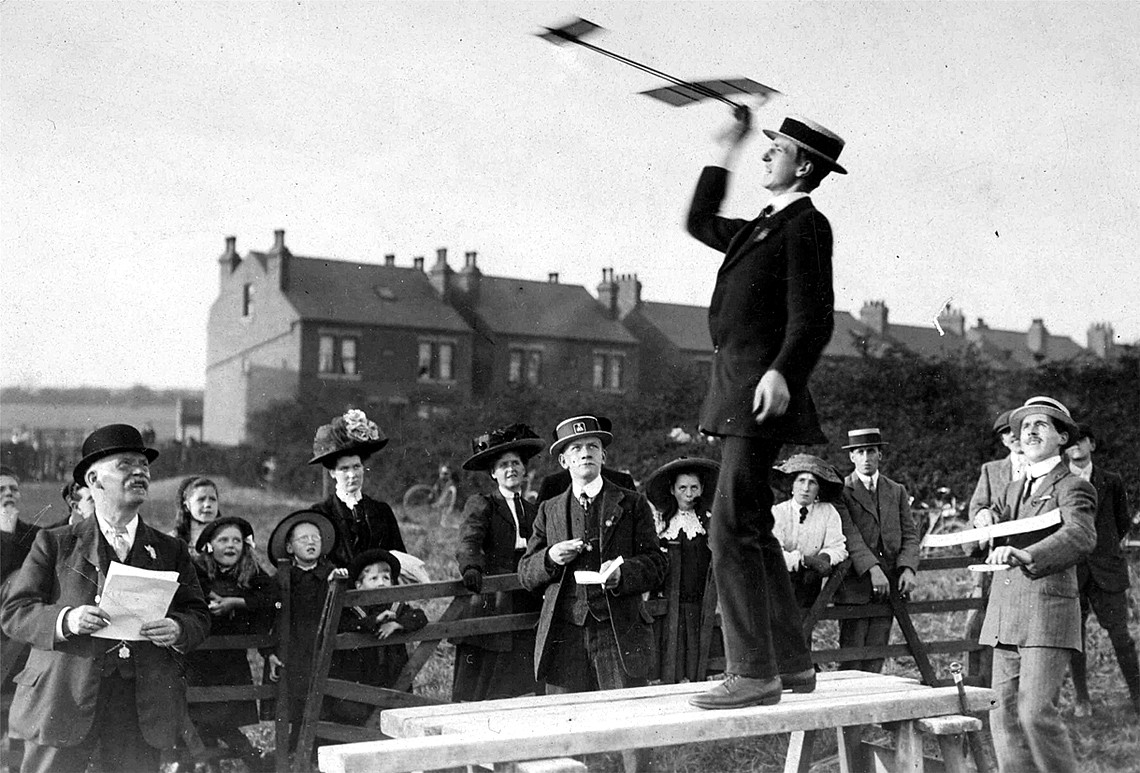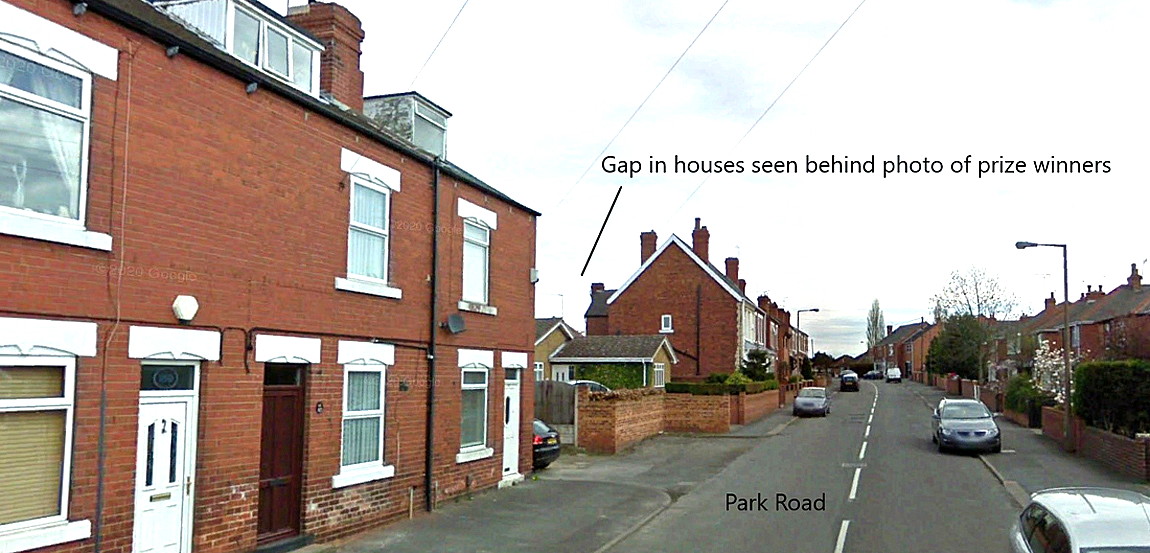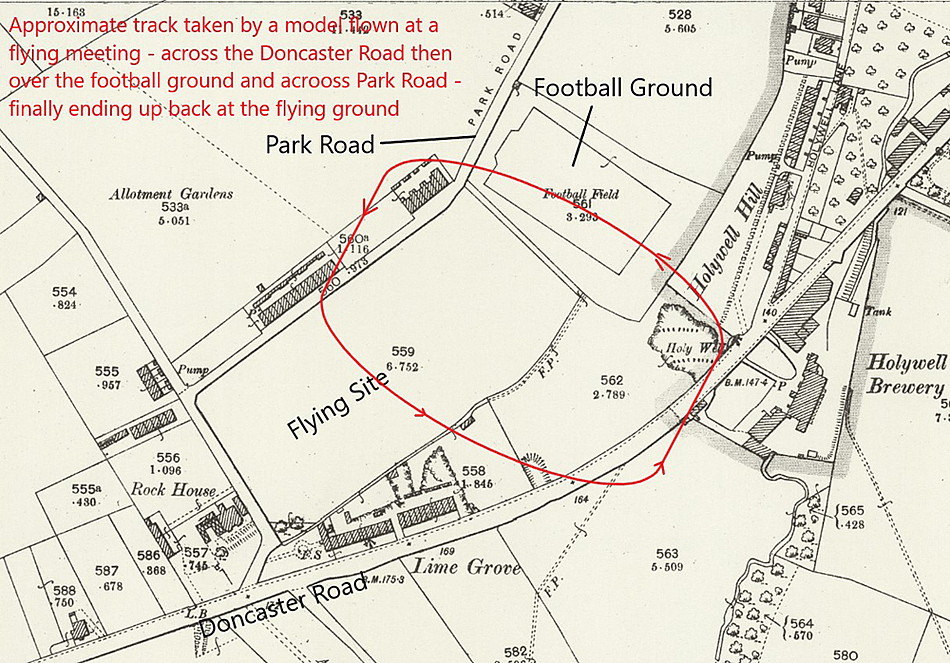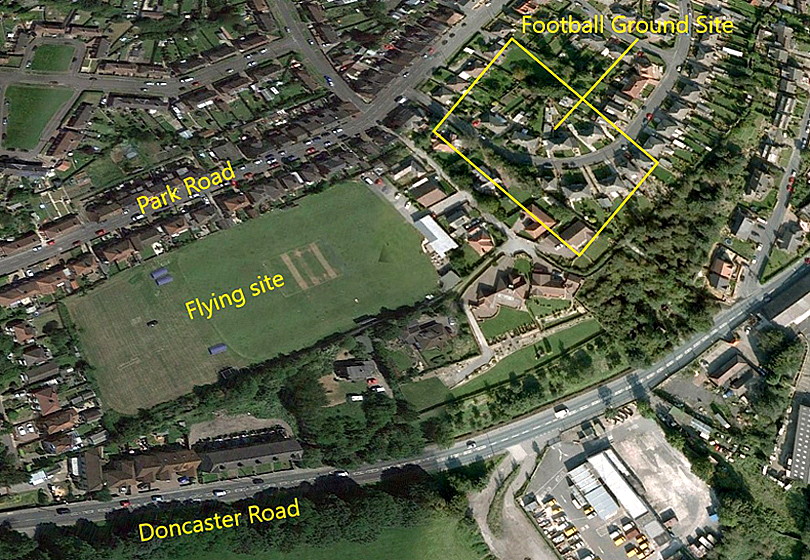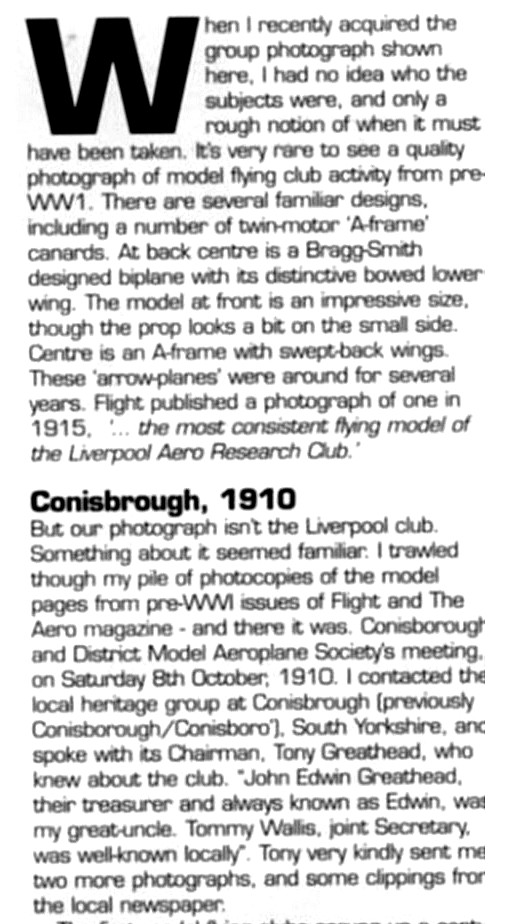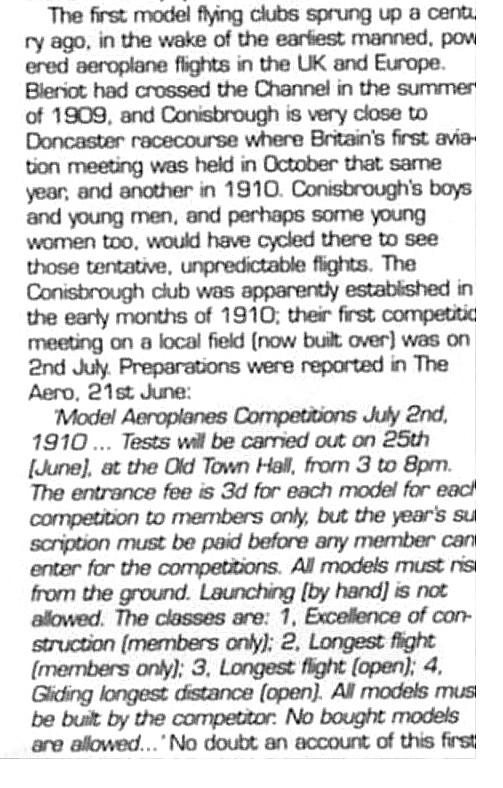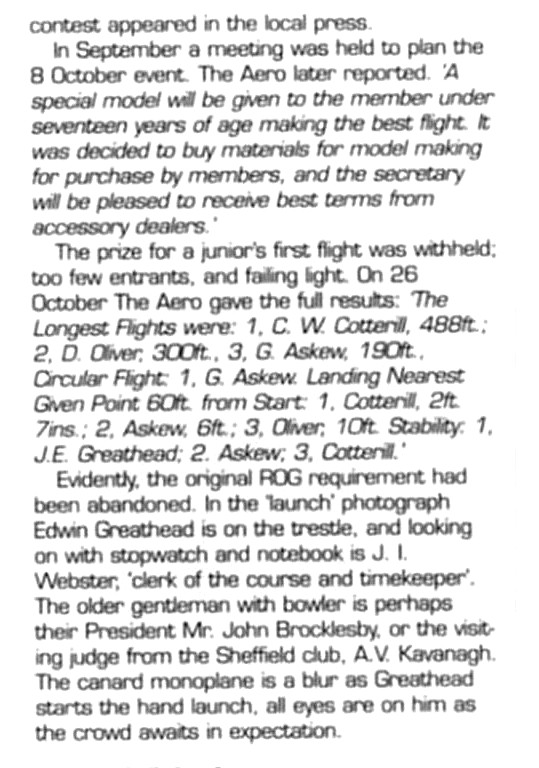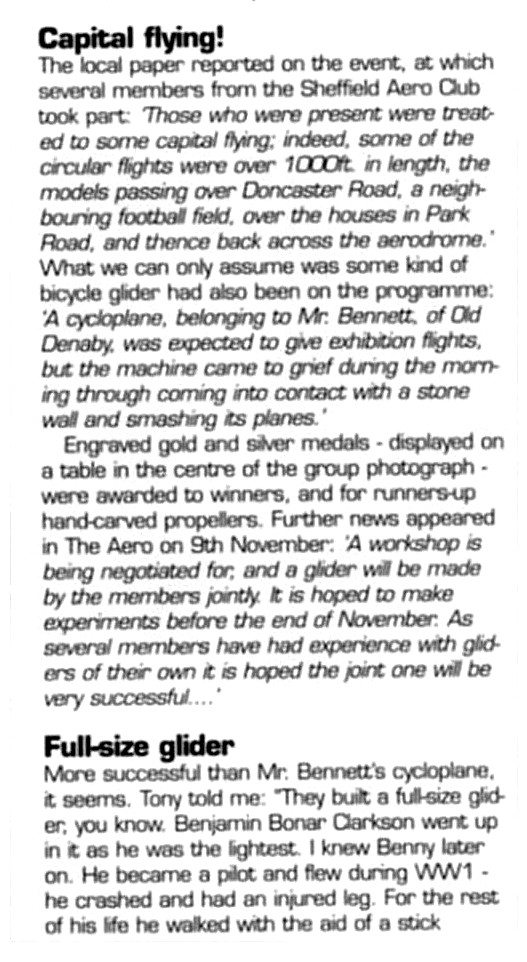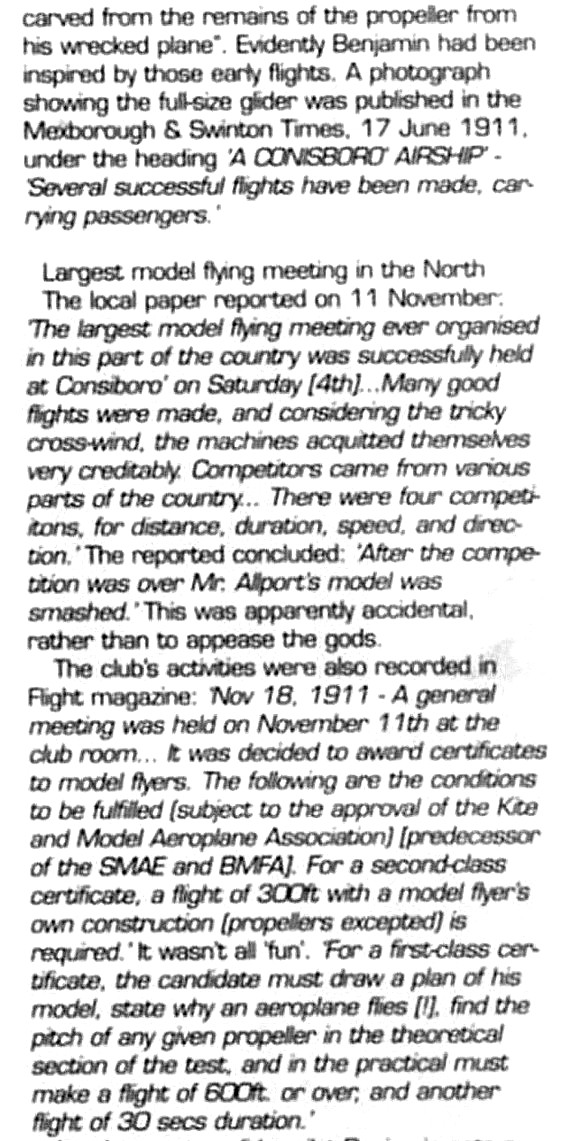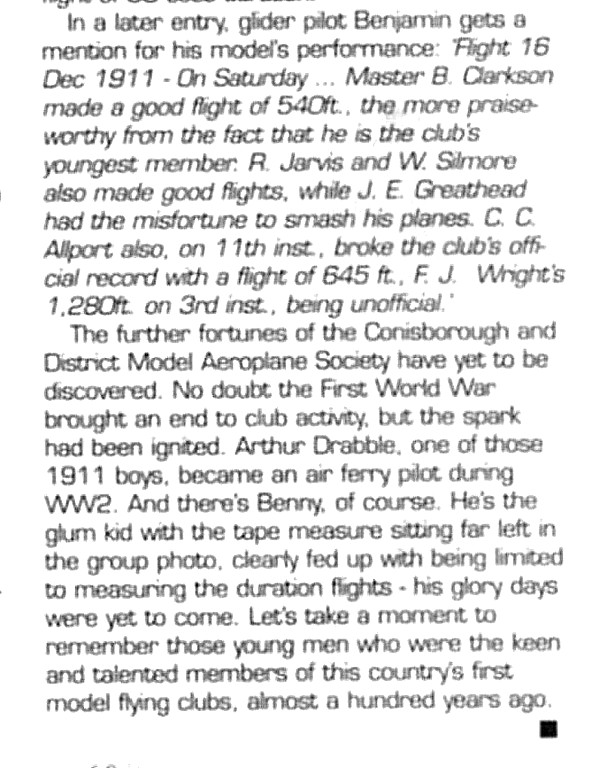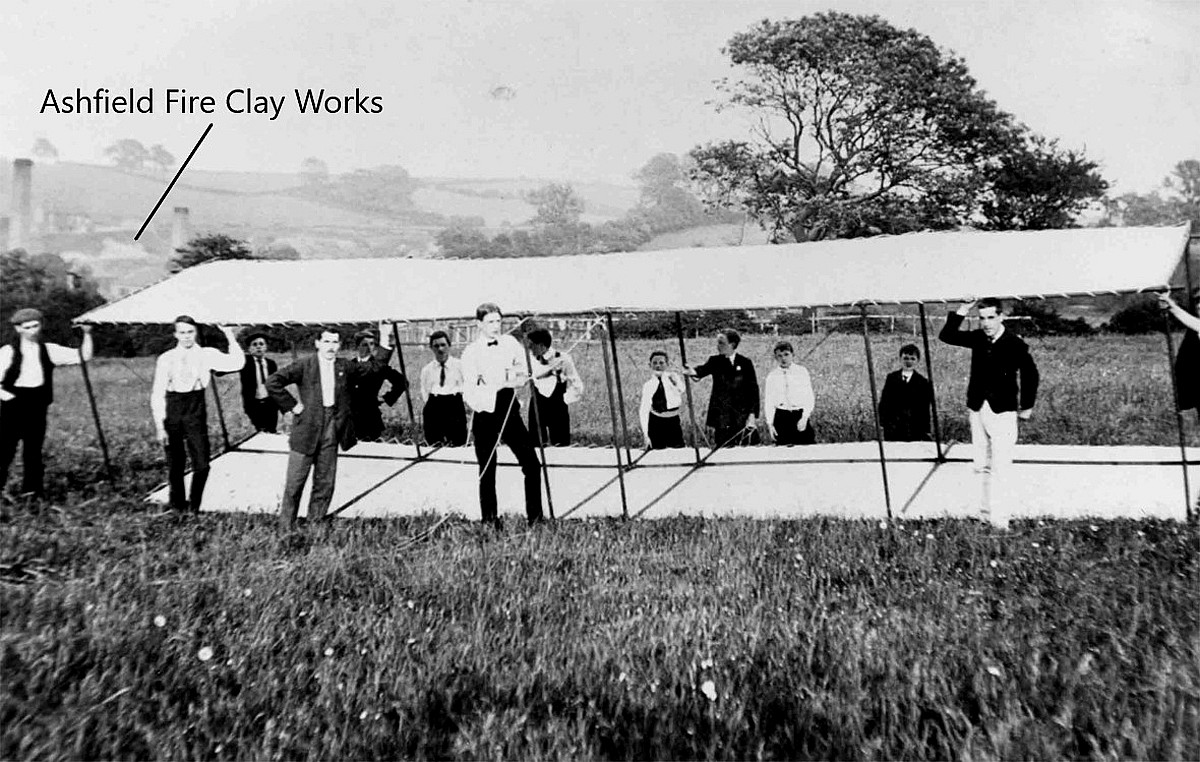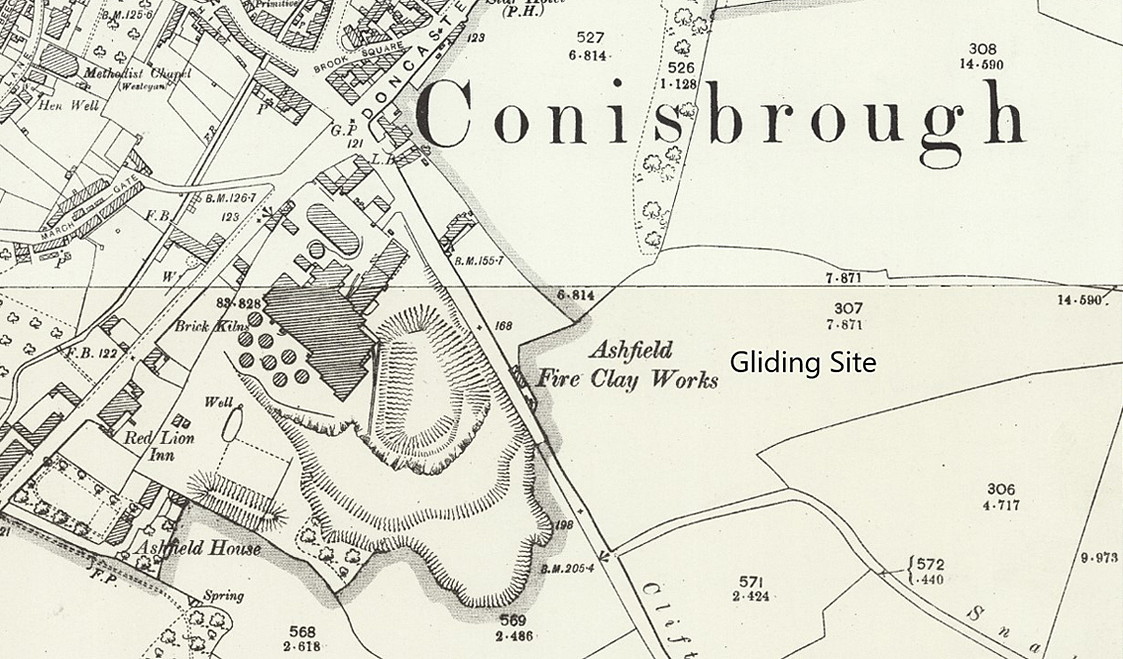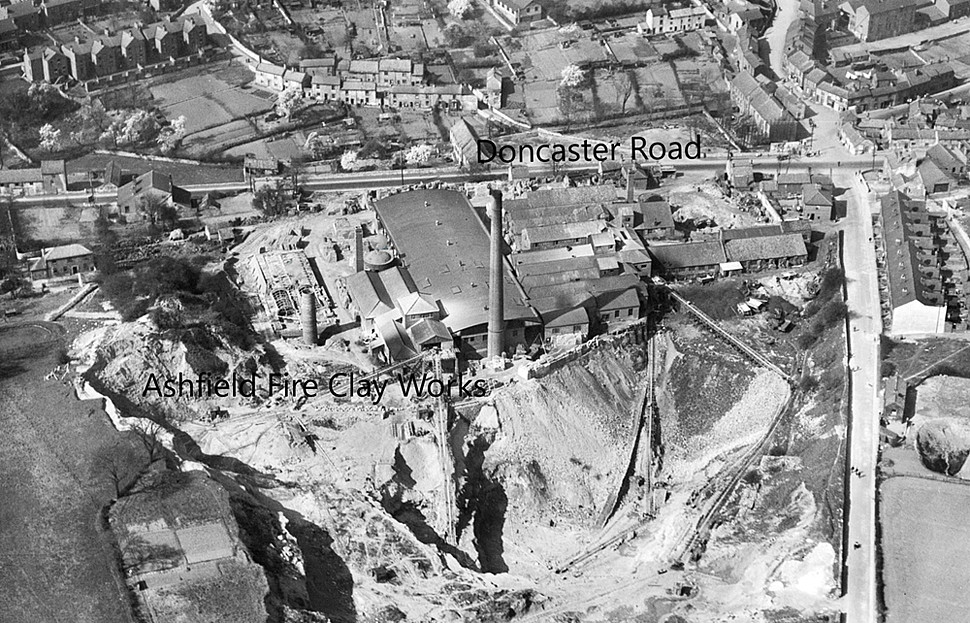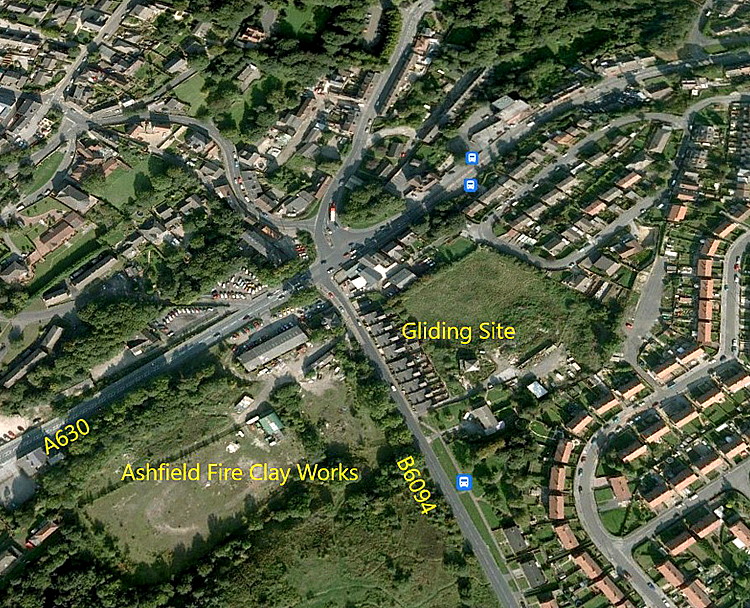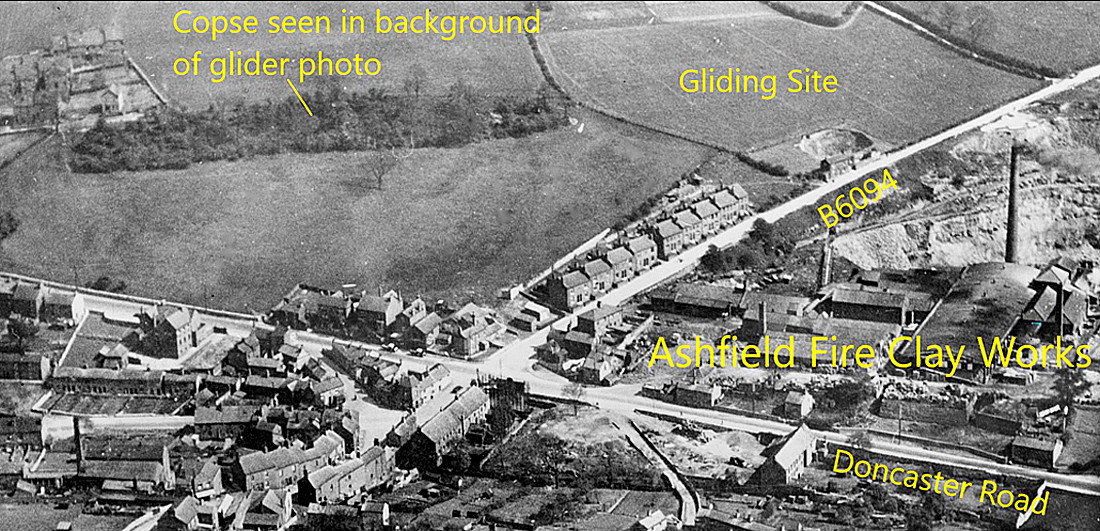Conisbrough
CONISBROUGH: Model flying and basic glider flying sites
Operated by: Conisborough and District Model Aeroplane Society
Locations: The model flying site was just N of the Doncaster Road and just SW of Conisbrough. The later gliding site was just SE of the A630 and B6094 junction, which is roughly just SE of Conisbrough. Conisbrough itself being about 5nm SW of Doncaster city centre
Period of operation: Oddly it seems, just during 1910 and 1911?
A MICHAEL T HOLDER GALLERY
We have Mike Holder, a great friend of this 'Guide', to thank for both finding and then researching this now pretty much forgotten enterprise. The gallery is divided into two parts - firstly the model flying site, and secondly the gliding site. As can be seen, Mike has gone to considerable lengths to illustrate both sites and their locations.
MODEL FLYING
The article was published in the Sheffield Daily Telegraph on the 6th May 1910. The photos above and below are from Conisburgh and Denby Main Heritage Group.
This article, split into six parts to make it easier to read, was published by the Conisbrough and Denby Main Heritage Group.
GLIDING SITE
The photo was published in the Mexborough and Swinton Times on the 17th June 1911.
NOTES: Aviation, especially flying powered aircraft was a rather elitist affair in the early years up until WW1. That changed during WW1 when the demand for pilots greatly outgrew the limited number of recruits coming from the upper classes. This said, for those wishing to own their own private aircraft during the inter-war years, with very few exceptions, such as those building their own aircraft, it was very much a case of being wealthy. A legacy that still persists in the popular imagination.
For those with a passion for aviation coming from the working classes, building and designing models was mostly the answer in those early years. Indeed, still the case today to some extent. Gliding was also an option, but, mostly confined to making short hops, invariably drawn aloft by willing helpers running and dragging the machine into the air on a bungee chord. Once again, a technique often used during the inter-war years.
Those early machines, such as seen in the photo above, were usually very primitive aerodynamically, very draggy contraptions too, barely able to keep flying even on a downward slope. Which of course serves to illustrate just how much the German gliding pioneer, Otto Lilienthal, had managed to achieve at the end of the 19th century. His designs being far more advanced than, for example, the gliders the Wright brothers experimented with in the U.S.A. years later. Which they used to help develop a powered aircraft.
We'd love to hear from you, so please scroll down to leave a comment!
Leave a comment ...
Copyright (c) UK Airfield Guide














